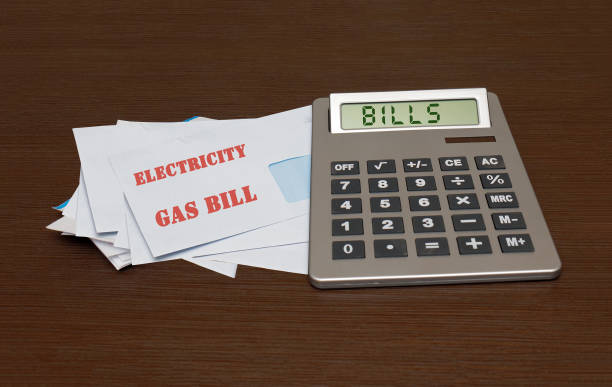For many UK businesses, energy bills can feel like a mystery—fluctuating each month without a clear reason. Whether you’re running a small shop or a large commercial site, understanding the average cost of business gas and electricity is the first step to taking control of your energy spend.
In this guide, Scalex Technology breaks down average business energy bills in the UK, what influences them, and how you can reduce yours with smart procurement and energy management.
What’s Included in a Business Energy Bill?
Your energy bill covers more than just the units of gas or electricity you use. A typical business energy bill includes:
- Unit rate (p/kWh) – What you pay per unit of gas or electricity
- Standing charge – A fixed daily fee to access the energy supply
- Climate Change Levy (CCL) – A tax applied to non-domestic energy use
- VAT – Typically 20%, unless you’re eligible for a reduced 5% rate
- Other charges – Network costs, metering, and potential third-party fees
Average Business Electricity Bills in the UK (2024/25)
Electricity rates vary by business size and usage, but here are typical averages:
| Business Size | Annual Usage | Average Annual Cost | Unit Rate (p/kWh) |
|---|---|---|---|
| Micro | 5,000 – 15,000 kWh | £1,200 – £2,500 | 30–35p |
| Small | 15,000 – 25,000 kWh | £2,500 – £4,500 | 28–33p |
| Medium | 30,000 – 50,000 kWh | £4,500 – £8,000 | 25–30p |
| Large | 100,000+ kWh | £10,000+ | 20–26p |
📌 Note: Prices fluctuate due to wholesale market changes, contract type (fixed vs flexible), and supplier tariffs.
Average Business Gas Bills in the UK (2024/25)
Gas is usually cheaper per unit than electricity but still contributes significantly to overall costs:
| Business Size | Annual Usage | Average Annual Cost | Unit Rate (p/kWh) |
|---|---|---|---|
| Micro | 5,000 – 10,000 kWh | £500 – £1,000 | 8–11p |
| Small | 10,000 – 30,000 kWh | £1,000 – £2,000 | 7–10p |
| Medium | 30,000 – 65,000 kWh | £2,000 – £4,000 | 6–9p |
| Large | 75,000+ kWh | £5,000+ | 5–8p |
💡 Tip: Businesses with high heat or cooking needs (restaurants, manufacturing) often have higher gas bills than others.
What Affects Your Business Energy Bill?
Several factors can influence how much your business pays for gas and electricity:
1. Energy Consumption
More energy used = higher bills. Simple as that. Smart metering can help monitor and control usage.
2. Contract Type
Fixed-rate contracts offer price certainty; flexible tariffs can rise or fall with the market.
3. Business Size & Industry
Industrial sites and hospitality businesses use more energy than small offices or shops.
4. Time of Use
Using energy during peak hours (e.g. 4–7pm) can be more expensive, especially on time-of-use tariffs.
5. Location
Energy distribution and network costs vary by region in the UK.
6. Energy Efficiency
Poor insulation, outdated equipment, and unnecessary overnight use all drive bills up.

How to Reduce Your Business Energy Bills
At Scalex Technology, we help UK businesses cut energy costs through:
✅ Bespoke energy procurement – We secure competitive rates from trusted UK suppliers
✅ Smart monitoring tools – Track usage in real-time and identify waste
✅ Bill validation services – We check your bills for errors or overcharges
✅ VAT & CCL relief – We ensure you’re not overpaying on taxes
✅ Green energy options – Lower carbon footprint and qualify for government incentives
📞 Need a better deal? Our corporate energy brokers can compare tariffs and switch you to a more cost-effective supplier in minutes.
Final Thoughts
Understanding your energy bill is the first step to controlling it. With energy prices still volatile in the UK, it’s more important than ever to monitor your usage, choose the right tariff, and partner with a trusted broker like Scalex Technology.
🔍 Ready to Reduce Your Energy Bills?
Let our team analyse your usage and provide a free, no-obligation utility quote tailored to your business.
📞 Contact Scalex Technology today and take control of your energy costs.
